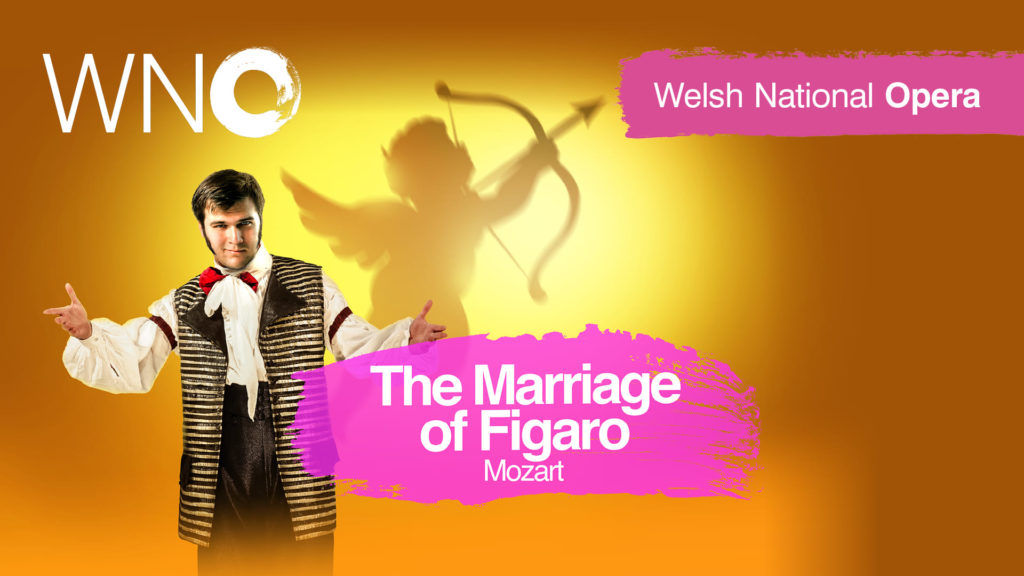
 (5 / 5)
(5 / 5)
Mozart’s beautiful arias are performed with dexterity and spirit by an excellent cast who is able to convey the levity, depth, and social criticism of The Marriage of Figaro. The strong performances are supported by the formidable WNO’s choir and orchestra conducted with brio by Carlo Rizzi.
The choice of scenario and early 18th century costumes indulge the fancies of the audience for a delightful farce where love is a game. We laugh at the jokes and smile at the subterfuge. That sense of play and adventure that pervades the opera might fool the audience into thinking that the Marriage is theatre that has little to do with reality; yet the apparent lightness allows a radical critique of class and gender.
Based on Beaumarchais’ La Folle Journée (1784), Lorenzo Da Ponte penned a revolutionary libretto, which shines a light on the lives of ordinary people. It is servants who are the protagonists of the opera. We get into their bedrooms, literally, and hear their perspective on their social status. Figaro is about to get married to Susanna and the two ponder their situation in life as servants. At any moment Figaro can be called and sent away by his master, the Count d’ Almaviva, while Susanna is subject to sexual harassment from the Count.
The choir of servants sing to the Count in gratitude for giving up his ‘droit de seigneur’, his right over his servants to spend the nuptial night with the bride. Although there is no evidence of such a practice, the reference emphasises the lack of rights servants had vis-a-vis their lords. It is sadly poignant today, not only in the aftermath of the #metoo movement, but also at a time when labour, including professional labour, is exploited and rights have been eroded by moving to increasingly precarious work.
In the opera, the women are conscious of their weak social status and use marriage to gain independence. They play with the men’s sexual desire pretending to be unfaithful. Susanna exposes Figaro’s lack of trust, the Countess makes the Count reckon with his unfaithfulness, while the peasant girl Barbarina blackmails the Count to marry Cherubino and thus improve her social status.
The twists and turns are not merely for comic effect, they make the characters face themselves, their weaknesses, desires, and values. The Countess, interpreted by the superb Anita Watson, is afflicted by her husband’s philandering. By making her husband face up to his unfaithfulness, the Countess makes him realise that there is no happiness in chasing women. The Count finds redemption in being forgiven by the Countess.
In this well-performed production, Soraya Mafi (Susanna), Anita Watson (Countess), Leah-Marian Jones (Marcellina), Anna Harvey (Cherubino), and David Ireland (Figaro) ensure a perfect balance of merriment and depth.

Anna Harvey as Cherubino was excellent
Yes, definitely!